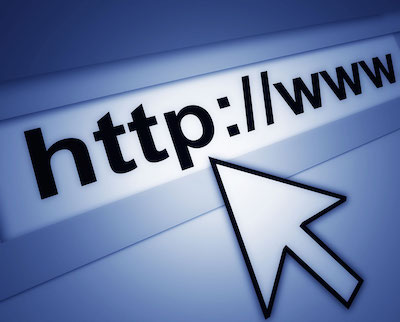What Net Neutrality Ruling Means for You
Posted on Friday, July 8th, 2016 at 5:43 pm
The following post is part of our Law Student Blog Writing Project, and is authored by Mark Ashley Hatfield, a Juris Doctor student at the University of Kentucky College of Law.
D.C. Court of Appeals… Net Neutrality… and You
 If you are reading this article, a recently decided D.C. Court of Appeals may have more of an impact on you than you realize. In an ongoing battle over cyberspace, the D.C. Court of Appeals ruled in favor of maintaining the Federal Communications Commission’s (FCC) net neutrality rules against a petition by broadband service providers. Confused as to how this would ever apply to you? Rest assured you are not alone, but this case affects nearly everyone, whether you realize it or not. In this article we will attempt to break down the significance of the 180-page opinion handed down by the Justices of the D.C. Court of Appeals and analyze how it may impact your use of the internet.
If you are reading this article, a recently decided D.C. Court of Appeals may have more of an impact on you than you realize. In an ongoing battle over cyberspace, the D.C. Court of Appeals ruled in favor of maintaining the Federal Communications Commission’s (FCC) net neutrality rules against a petition by broadband service providers. Confused as to how this would ever apply to you? Rest assured you are not alone, but this case affects nearly everyone, whether you realize it or not. In this article we will attempt to break down the significance of the 180-page opinion handed down by the Justices of the D.C. Court of Appeals and analyze how it may impact your use of the internet.
In order to better understand what this case means, it is important to have some background knowledge on the concept of net neutrality and to know how similar cases have been treated in the past.
First, the term net neutrality essentially refers to the idea of “internet openness.” To break it down further, net neutrality refers to a set of rules introduced by the FCC to keep the internet experience free of gatekeepers who seek to control the available content. Particularly, this goal aims to prevent service providers (i.e., AT&T, Comcast, Time Warner, etc.) from favoring certain content over others; for example, choosing what content gets downloaded more quickly or what content is blocked completely. Thus, the entire idea of net neutrality can crudely be broken down to the idea that all content must be treated equally regardless of its source.
As the case further explains, the internet is made of four major participants: end-users (you and me), broadband service providers (AT&T, Comcast, Time Warner, etc.), backbone networks (provides path for transfer of information), and edge providers (Netflix, Google, etc.). Among other similar concerns, those in favor of net neutrality worry that, if these rules are removed, broadband service providers might limit end user’s access to certain edge providers or degrade the quality of certain edge provider’s content. Doing so would allow them to collect fees from those providers to boost their content, or to show favoritism to their own competing services. What this would mean for you, as an end-user, is filtered content. For example, your broadband service provider may limit your ability to access Netflix in hopes that you will change your preferences and subscribe to Hulu TV instead. In the case at hand, the D.C. Court of Appeals has ruled in favor of the current net neutrality rules; an act that, for now, prevents service providers from showing favoritism towards any content.
Although the internet is merely in its adolescent years, this is not the first time it has been the focal point of judicial scrutiny. For years, interest groups have debated over whether services should be classified as “information services” (i.e., Google ) or “telecommunication services” (i.e., phone service) under FCC rules. The differences between the two can get somewhat messy and a bit technical, so we will avoid getting too deep into the weeds for now. For the purposes of this article, it is only important to know that the FCC’s rules for services deemed to be information services are much more lenient than those afforded to telecommunication services. Thus, service providers like those mentioned above have been arguing that the internet they provide to end-users should be treated as an information service because they do not want to adhere to the stricter rules imposed on telecommunication services. Unfortunately for the service providers, the majority in the D.C. Circuit of Appeals was not so inclined to agree and ruled that service providers shall be subject to the more stringent rules that govern telecommunication services
Explicitly before the D.C. Court of Appeals in this case was the argument that the FCC had incorrectly classified broadband internet as a telecommunication service. Among other arguments, the service providers attempted to argue that they provide more than just a medium for end-users to connect to the internet. Although true, the court downplayed the significance of these add-on services (i.e., email) offered by service providers citing studies that illustrated end-users turned to third-party providers (Google and Yahoo in the case of email) for those add-on services.
Expanding on its position, the court explained the vast presence of third-party content:
Indeed, given the tremendous impact third-party internet content has had on our society, it would be hard to deny its dominance in the broadband experience. Over the past two decades, this content has transformed nearly every aspect of our lives, from profound actions like choosing a leader, building a career, and falling in love to more quotidian ones like hailing a cab and watching a movie. The same assuredly cannot be said for broadband providers’ own add-on applications.
Broadband providers, according to the majority, serve merely as a conduit for end-users to access other content they wish to discover.
In the Open Internet Order of 2015, the FCC officially reclassified broadband internet service as a telecommunication service stating that: “broadband service satisfies the statutory definition of a telecommunications service: ‘the offering of telecommunications for a fee directly to the public.’” Again, much debate has occurred over this topic, but with this ruling, the D.C. Court of Appeals upheld the FCC’s recent reclassification. The broadband service providers have stated they will seek review by the Supreme Court, but until such a review is held, this ruling will set the precedent for how the internet is used and regulated.
To be sure, this case is more than just a battle between service providers and the FCC. With a strong dissenting opinion and a string of cases essentially flip-flopping on the issue as the internet has grown and developed, the battle may just be beginning. Certainly, a review by the Supreme Court is not out of the question. Even more notable for end-users like yourself, this case is more than just another legal precedent. With the majority of America’s population being internet users, roughly 85% according to some surveys, this case serves as an indication of how we can expect our internet usage to be policed in the future.
For now, our access to the internet remains an open platform where the large tech company’s website based in Palo Alto, California gets treated the same as the start-up tech company’s website based in Covington, Kentucky. Net Neutrality effects many different groups including the average internet user, and if regulations like these cease to exist, we could find ourselves surfing an internet that has been bought out by the highest bidder.










